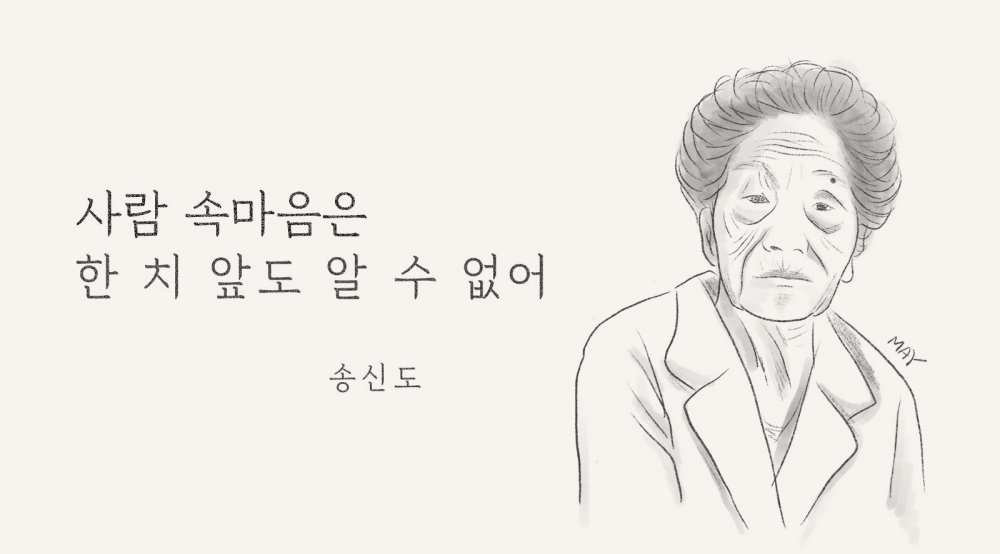
"We have not the slightest idea of what a person thinks inside. I could not trust anyone all my life because I have been deceived over and over. But it was a little comforting to have the trial and be open about what I went through. I have stepped closer to becoming a proper human being. I completed removed the stains and am now an educated grandmother."
Song Shin-do bravely fought for ten years in the "Comfort Women" trial as the only plaintiff in Japan after she filed a lawsuit demanding an apology from Japan on April 5, 1993. She expressed her appreciation as above after hearing that the Japanese Supreme Court rejected the appeal and confirmed her defeat. The remark directly showed her feelings before the lawsuit and after the defeat.
Song Shin-do experienced two great upheavals in the course of her long life. Her life suddenly shifted once when she was taken to a Japanese Military "Comfort Station" in China and once again when she was proposed to by a former Japanese soldier after Japan’s defeat and then went to Japan. Both upheavals were the result of deception.
When I first met Song Shin-do, she said repeatedly, "I am very gullible", as if she was on guard. The reason why she lived without trusting anyone for such a long time may be due to the two acts of turbulence she had gone through.
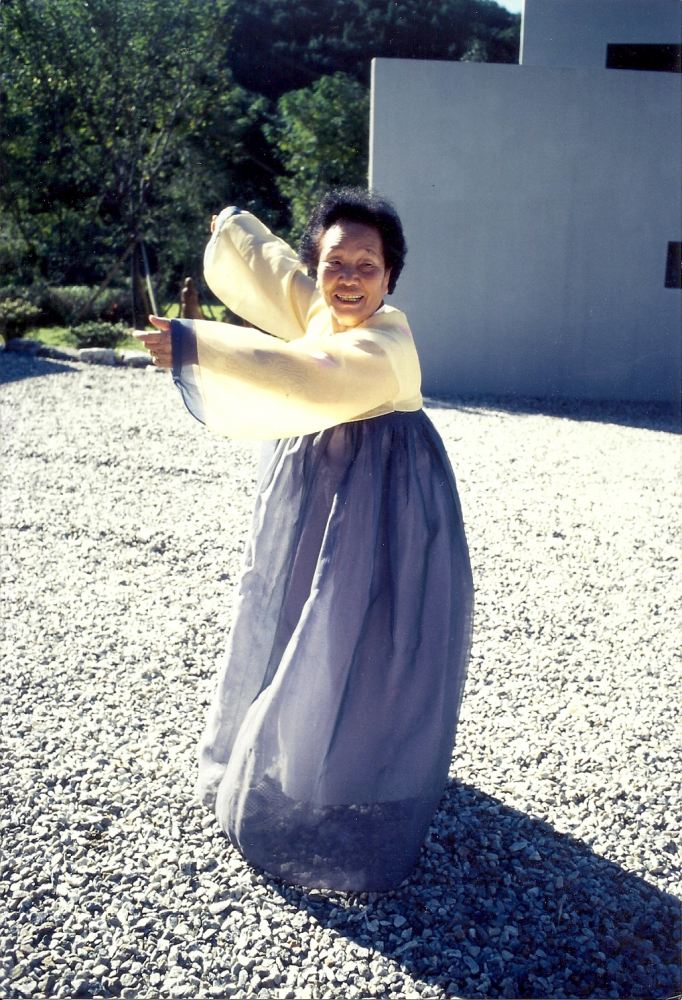
Running away from her hometown to China in order to avoid marriage
At about the age of 16, Song Shin-do married a man her mother had chosen for her. After the reception, the groom, who was 11 years older than herself, put his hand on her shoulder in the bedroom. At that moment, she pretended that she needed to go the restroom, and then escaped her honeymoon house to return to her parents’ place. Only wearing underwear, she ran frantically through the night street which was filled with the resounding cries of the frogs in rice paddies. When she finally arrived at her parents’ place, she noticed all of her families seemed to be quietly asleep. Feeling cold as she was wearing underwear only, she carefully and silently went inside the furnace that stopped burning, and fell asleep.
The next morning, her younger sister found Song Shin-do sleeping inside the furnace and screamed in surprise. Hearing that sound, her mother rushed out to see what was going on and became very angry when she saw her, as the custom at the time was that a girl was not allowed to visit her parents for three years after marriage. Realizing that she could not be with her parents, Song Shin-do left her parents’ house. Her mother yelled and chased after her but could not catch up with her.
Afterwards, she stayed at her friend's house to work as a nanny. One day, a middle-aged woman approached Song Shin-do and said.
"If you move to China and work for the country, you can live alone without getting married".
The middle-aged woman probably heard about why Song Shin-do was taking care of a baby at a friend's house. Song Shin-do could not guess what ‘working for the country’ entailed, but she accepted the woman's offer since she was attracted to the idea that she ‘did not have to get married’.
The second turmoil after Japan's defeat
The second time she was deceived was when she was staying at a Japanese Military Comfort Station in Xianning (咸寧), Hubei Province, China, shortly after Japan's defeat. The Japanese Army suddenly stopped visiting the Japanese Military Comfort Station, and the female managers there, along with Song Shin-do and the other "Comfort Women" did not know what to do. One day, a Japanese Army’s noncommissioned officer called ‘Ida Kanesaku (井田金作)’ approached Song Shin-do to make a marriage proposal. He used to visit the Japanese Military Comfort Station in Yuezhou (岳州), where Song Shin-do had previously stayed for a few months. Ida assumed civilians could return to their home country faster than the soldiers, so after leaving the Army, he used Song Shin-do in order to pretend that he and Song Shin-do were a married couple trying to return home together.
For Song Shin-do, Ida was only one of the many soldiers who frequented the Japanese Military Comfort Station. However, she accepted Ida's marriage proposal. After seven years of being treated only as a sexual object by countless Japanese soldiers, she believed that she had no hope for marriage. At the time, Song Shin-do would have felt overjoyed simply by the fact that someone had proposed to her, no matter who the man was.
Since Ida had little money, the two remained homeless while spending the money Song Shin-do had saved, and headed to Hankou (漢口) where they could board on a ship.
In the Japanese leased territory (租借地, a territory where one country borrows from another country) in Hankou, the masses of Japanese people were waiting for the transportation ship[1] that would take them back to their homeland. Song Shin-do stayed with Ida among other Japanese people for about nine months in a small space made with the straw mats. Her money was gradually running out. Even before Japan’s defeat, Song Shin-do was earning money by doing the laundry and receiving orders from the houses of Japanese people who were living in the Japanese leased territory.
Ida, who had no job, conspired with several people to sneak into the house of a Japanese person who was married to a Chinese person, murdered the owner of the house, and took the money and valuables to share them with his accomplices. It was not until later that Song Shin-do found out about this.
Among those waiting for the transportation ship was a woman holding a two-month-old infant. When the woman caught an infectious disease and was nearing her death, she said that she could not leave her infant behind, and tried to kill both herself and her baby by swallowing medicines together with the baby. The woman died, but her baby ended up surviving. An official of the transportation team tried to find a person to raise the newborn baby, but Song Shin-do had no intention of becoming a caregiver. While living in the Japanese Military "Comfort Station", Song Shin-do had a stillborn child and an abortion through home remedies. Although she safely gave birth to two babies, she had to ask other people to raise them because she could not take care of her babies at the Japanese Military "Comfort Station". That was why she thought she could not keep someone else's baby as she could not protect her own babies.
However, Ida decided to keep the newborn baby anyway against Song Shin-do’s wishes. The luggage of the woman who committed suicide contained lots of expensive valuables such as the federal reserve notes (儲備券, banknotes issued by the central bank of China since 1941), clothes, gold watches, gold rings, etc. Those items were what Ida had his eyes on. The federal reserve notes were invalid, but Ida sold all the valuable items of the dead woman.
The transportation ship arrived finally. Song Shin-do could not find the baby formula to feed the baby. Not long after the ship departed, Ida threw the newborn into the dark Yangtze River (長江) while Song Shin-do along with all the other people on the ship were soundly asleep.
“That is my biggest sin.”
Song Shin-do muttered, apparently feeling guilty that she could not save the baby, although Ida was the one who perpetrated the crime.
On the day the ship arrived in Hakata (博多), Ida tore off the temporary marriage certificate proving his marriage with Song Shin-do, which he applied and got issued from the Hankou government office.
On a ship departing from Hankou to head to Hakata, there was an incident in which a former Japanese military officer received the fierce protests as he was surrounded by Koreans who had been exploited in the military. Song Shin-do assumed that Ida tore off the temporary marriage certificate because he became anxious about his marriage with a Korean woman after watching that protest. Even after ripping off the temporary marriage certificate, Ida forced Song Shin-do not to reveal to anyone about his robbery in the Japanese leased territory, about his murder crimes, and about the baby he threw away at sea. All of these acts would have been classified as crimes after he became a civilian. However, slaughter and looting took place routinely during the war around Ida, who was a noncommissioned officer of the invading army.
For a while, Ida let Song Shin-do stay at his home in Fukaya, Saitama Prefecture (埼玉県深谷), but he never bothered to have a wedding. One day, he took her to Tsuruhashi, Osaka Prefecture (大阪府鶴橋), told her heartlessly, “Try selling your body at least”, and left her.
While working at the Momodani (桃谷) boot factory run by a Korean person, Song Shin-do saved up for the train fare, bought gifts, and went back to Ida's home. Ida's mother and his older brother tried to persuade Ida by telling him, "Do not be so cold-hearted. She is the woman you brought here", but Ida's mind did not budge. After receiving about one doe and five bowls of rice (about 2kg) and a piece of simple clothing (a dress), Song Shin-do boarded the train again.
There were many vagrants inside Ueno (上野) Station, the last stop of the train. Upon arriving at Ueno Station, Song Shin-do wanted to go to the bathroom so she asked a passerby where the public bathroom was. One man gladly offered to hold onto her luggage, so she went to the place he indicated to her, but she could not find the bathroom. When she returned to the place where she left her luggage, she realized the man had disappeared along with her luggage. Her luggage contained her return certificate.
Her temporary marriage certificate was ripped to pieces by Ida, and her return certificate was also lost at Ueno. Now Song Shin-do no longer had any means to stay in Japan. Devastated, she got on the train that had just stopped, stayed on the shaking train for a while, and then jumped from the train while it was running. Song Shin-do survived, but she suffered a miscarriage. She was pregnant with Ida's child.
A farmer near the Tōhoku (東北) main line rescued Song Shin-do who jumped off from the train. The place where Song Shin-do jumped was near Ishikoshi (石越). A male black-market rice seller who was entering a nearby farmhouse informed her that there was a Korean person who ran a hamba restaurant (small restaurants near construction sites) in Onagawa and recommended that she could try working there as a maid. Song Shin-do decided to visit the hamba restaurant because she thought that although she could not cook food, she could at least take care of the chores.
Song Shin-do went to the hamba restaurant in Onagawa and met Ha Jae-eun there. Song Shin-do replied to all his questions while she sat nearby the irori.[2] As he was warming up Song Shin-do’s dirty sweater near the irori fire, Ha Jae-eun listened to her and shook his head again and again, saying, "Oh, you poor thing. You poor, poor thing". While Ha Jae-eun was listening to Song Shin-do, lice that had been heated up thanks to the fire crawled out between the strands of her sweater and fell into irori.
Song Shin-do lived with Ha Jae-eun from that day on.
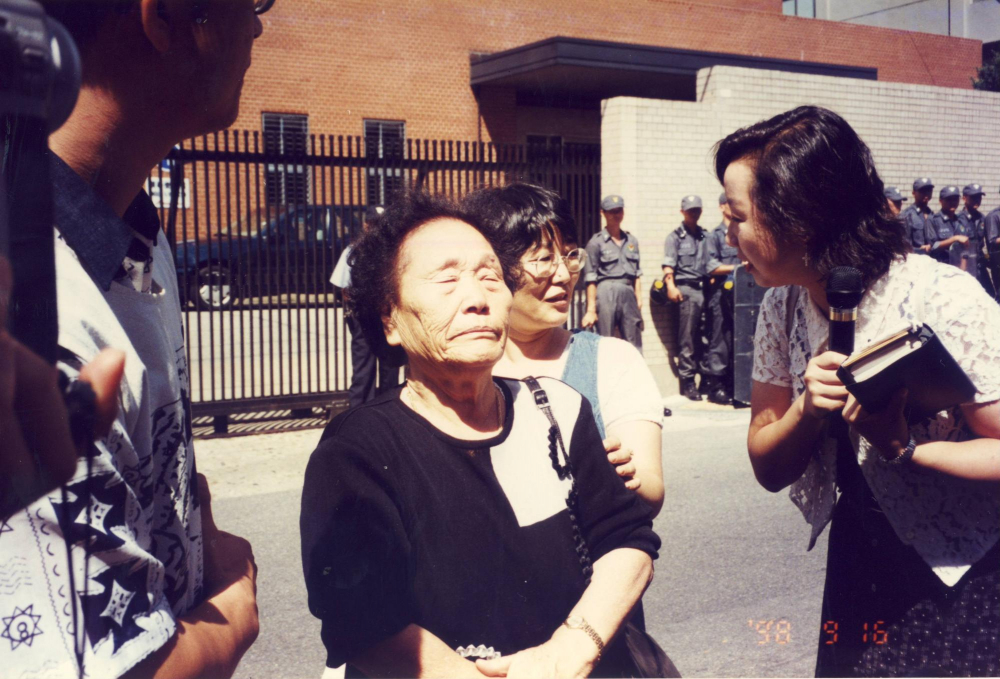
Things that have been destroyed by the Japanese Military "Comfort Station" System
Song Shin-do, who went to China after hearing a lie that she could avoid marriage by living in China, was then taken to the Japanese Military "Comfort Station" in Wuchang shortly after the Japanese Army occupied it in the late autumn of 1938 via the Wuhan (武漢) tactics. She saw clots of blood stuck on the surface of the brick building entrance, along with the corpses lined up in the backyard. The Japanese Military "Comfort Station" in Wuchang was called the ‘World Hall’. The World Hall building was initially used as a restaurant, but soldiers who were originally carpenters or plasterers divided the building into small rooms to convert it into the Japanese Military "Comfort Station". Knowing that the women would arrive soon, soldiers gathered in the World Hall even before permission to open the Japanese Military "Comfort Station" was granted.
After arriving at the Japanese Military “Comfort Station”, Song Shin-do refused the first soldier who entered her room by shrinking her body as much as she could. Every time she refused, she was beaten by the soldiers and guards of the Japanese Military “Comfort Station”. She tried to run away several times. However, she was caught each time and the guards beat her, kicked her, and dragged her by her long hair. She was also threatened with the words, "If you want to get out of here like that, give us back all the money that was spent to have you come here. Right now!". Even if she could succeed in escaping from the Japanese Military “Comfort Station”, she did not know how to speak or write Chinese, and she was penniless. Also, when she went to see her younger sibling just before heading to China, she was told that her mother had passed away. Her hometown was too far to return to, and there was no place she could stay in even if she returned to her hometown. Because of that, she gradually gave up trying to escape, thinking that there was nowhere else to go.
There was a military supply base set up in Wuchang, so the troops heading to the battlefront stopped by the military supply base to replenish the weapons, ammunition, and food, while the troops returning from the battlefront took rest at Wuchang. The number of troops stationed in Wuchang was not very large, but whenever the troops passing through Wuchang came, the number of soldiers lined up in a row for Song Shin-do’s room amounted to 70 per day alone.
Song Shin-do fell pregnant during her stay at the Japanese Military “Comfort Station”. One day, when she entered the seventh month of pregnancy, her belly became oddly cold. As the pain grew stronger, one thin, not fully developed foot came out. No progress was being made after the foot came out. She jammed the rice balls next to the inside of her mouth, gathered her whole body's strength, and pushed several times. Then, the baby’s body and head were delivered finally. The stillborn baby resembled the shape of a sea cucumber and looked purple. Alone with the baby’s cold body, Song Shin-do went to the foot of the hill behind the Japanese Military “Comfort Station” and buried the baby there.
When she fell pregnant for the second time, she moved to the navy’s Japanese Military “Comfort Station” in Hankou to take charge of little chores to avoid straining her body so much. Although the baby was born safely, she could not raise the baby at the Japanese Military “Comfort Station”. The baby was sent to a Korean woman living in the suburbs of Hankou, and Song Shin-do was sent to the Japanese Military “Comfort Station” in Yuezhou, which was an old town with only two or three Japanese Military “Comfort Station”s. Yuezhou was close to the battlefront, so the “Comfort Women” in Yuezhou followed the troops who were heading out for cleanup operations. Being one of the “Military Comfort Women” was only possible for the more experienced “Comfort Women”.
“I wore a helmet, put on the gaiters, and was taken out to the battlefront. They dug each hole just big enough for one person, and put a blanket there, so that I could do my job there. Things were okay in the summer, but the snow in winter was a challenge. I felt like my clitoris was going to turn to ice because my bottom had to remain naked on a cold space for 30 minutes. That was more painful than dying.”
She once went to Chang'an (長安) to follow the military orders. While dealing with a soldier inside a hole dug up for ‘comfort’ purposes per usual, bullets suddenly began to fly over her head. Song Shin-do wanted to escape the spot as soon as possible, but the soldier said, "I have no regrets about dying now right here" and refused to let her go.
When she was sent from Yuezhou (岳州) to Yingshan (応山), there was an incident where her colleague called Toshiko, who was working at the Japanese Military “Comfort Station” next to Song Shin-do, rejected a soldier she had known because she had a bloody stool due to an infectious disease. The soldier became angry and threw a large rock at Toshiko who was sleeping outside at the time. Toshiko was hit in the stomach by the rock and died of peritonitis. Other women in the Japanese Military “Comfort Station” handled Toshiko's body and cremated it. They piled up several trees, placed her body on top, and kept throwing in the tree branches to keep the fire burning for a long time until the bones could be picked up. Toshiko was from Jeollanam-do, but her remains were buried in the mountain nearby where she was killed.
And Japan finally lost the war several months after Song Shin-do was transferred from Yuezhou to Xianning's Japanese Military “Comfort Station”.
Deep wounds that have been engraved over the course of seven years
There were many scars on Song Shin-do’s body.
She had a small bean-sized sunken scar near her neck. When asked whether it was a wound caused by the Japanese Army, she replied that it was a scar from when she was stabbed by her own mother as a newborn because she was not the boy her mother wanted. Her name Shin-do must have been the same as the name given before childbirth.
On her left arm, there was a Chinese character tattoo reading ‘Kaneko (金子)’. She was given this tattoo so that she would not forget the World Hall. Song Shin-do cannot read those letters. My guess is that this tattoo was given in order to prevent any of the women from running away from the Japanese Military “Comfort Station”.
On the left side of her torso, there was a cut mark about 10cm in size.
"Around 1940, I saw that the soldiers were going crazy. It was Sunday, and I was really scared. They pulled out their knives to hustle around each other. Some soldiers fought against themselves, and one pulled his knife out of jealousy, questioning why he was not getting served despite how much he loved me. He cut his hand and then here (my side). The wound I got was large and deep, but there was not much blood. The soldiers had to continue to be served even as I cried and groaned with the bandages on.”
There were also signs of forced suicide on her wrist.
And there was a wound at the end of her thigh....
"They kept asking me to go on top, or they did it from the sides or from behind. Whenever I refused, I was reminded that they had a knife so killing or saving me was a piece of cake for them. On days when the troops passing through Wuchang paid their visits, I had to work from 7 a.m. to 10 p.m... It felt like there was a fire in my crotch.”
It might have been unbearable for her to talk about what happened between her and the soldiers at the Japanese Military “Comfort Stations”. Song Shin-do asked me to stop questioned her about her experience. Talking about it may have reminded her of the hatred and unbearable resentment she felt towards the unthinkable behavior of the soldiers, who tried to comfort themselves through the bodies of the "Comfort Women" to deal with the atrocities they faced in the battlefields which were filled with repeated destruction and slaughter.
Ha Jae-eun, who lived with Song Shin-do after Japan's defeat, was reputed by the people around him as someone who would have served as a government official or a teacher if he were Japanese. Song Shin-do respected and trusted Ha Jae-eun. Beyond that, she cherished his kindness more than anything else in her life, for it was him who rescued her when she was at a loss about how to live in Japan which was completely unfamiliar to her. The two lived like a couple, but she only regarded him as a family by calling him "Father, father" and had no sexual interaction with him. Regarding this, she gave the following statement during her interrogation at the Tokyo District Court:
"I had been working as one of the "Comfort Women" and broke my body, so I do not have such desires at all …Omitted… Just looking at a man makes me wonder what the deal is with that jerk. I feel repulsed just by looking at men’s faces.”
Her statement illustrated a deep wound carved over seven years spent in the Japanese Military “Comfort Station”.
She fell pregnant five times by the Japanese soldiers, including Ida. However, she could not raise a single child herself. The damage caused by the Japanese Military “Comfort Station” System became deeply engraved on the mind and body of Song Shin-do.
"I hear that your thing is as big as a bucket."
"You got calluses because you did it too much."
When I first met Song Shin-do, she told me that she was booed with those humiliating words while living in Onagawa. She also had neighbors who had experience on the Chinese battlefronts. Some people belonged to the vanguard units like Ida. Song Shin-do never told anyone that she lived in the Japanese Military “Comfort Stations” in China. However, the horrifying jeers aimed at her were targeting the scars of war on her body.
Song Shin-do lived in the postwar era which compelled her to feel that ‘We have not the slightest idea of what a person thinks inside’. However, after filing a complaint to the court, she got to know the many patrons who sincerely supported her trial. Perhaps thanks to this, even after the Supreme Court confirmed her defeat, and even when the great earthquake in East Japan washed away both her house and household goods in 2011, and she was forced to start living in Tokyo, she muttered “I have never been happier."
The power of each patron was so small compared to the devastating damage that Song Shin-do endured from the Japanese government, the Japanese Army, and Japanese society. However, the support was precious as it left a great impression on her heart. Song Shin-do passed away on December 16, 2017.
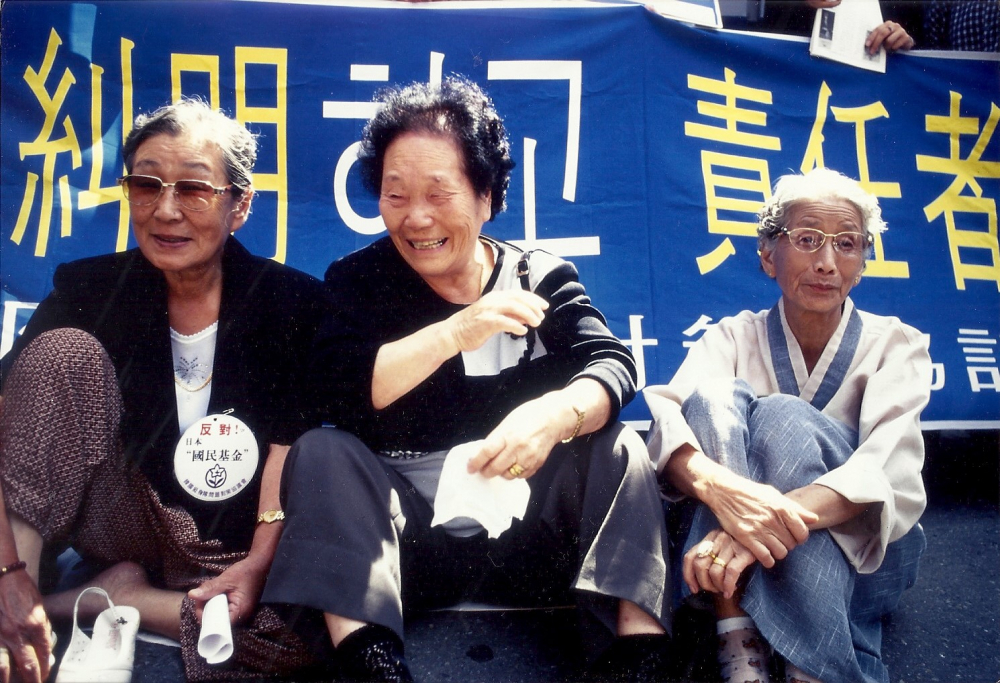
Footnotes
- ^ Here, transportation entailed helping the Japanese people who lived outside of Japan or in the occupied areas return to mainland Japan in accordance with national policy after defeat in the war. The expression is used separately from the return of colonists, or repatriation which includes the element of force.
- ^ A device that is created by digging out the floor in a square shape in Japanese farmhouses to make fire for heating or cooking
Related contents
-
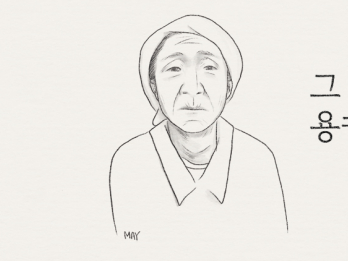
- The Story of Bae Bong-gi – “We luckily managed to survive amid that war.”
-
In her book <The House with a Red Tile Roof - The Story of Korean Women Who Became the Japanese Military "Comfort Women"> which was translated into Korean in 2014, Kawata Fumiko vividly yet calmly unraveled the testimony of Bae Bong-gi, one of the Korean "Comfort Women" who was taken to Okinawa. Based on the testimonies and data collected from Okinawa residents, Japanese soldiers, as well as Bae Bong-gi, this article describes the detailed circumstances experienced by Bae Bong-gi and the “Comfort Women” surrounding the U.S. military’s air raids that took place on the Kerama Islands, Okinawa.
-
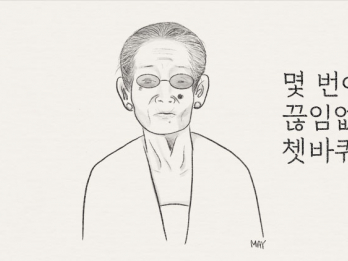
- 인도네시아에서 일본군이 일으킨 성폭력(1) - 마르디옘, 스하나 씨 이야기
-
제가 지금까지 살면서 죽고 싶을 만큼 창피한 적이 두 번 있습니다. 첫 번째는 위안소에서 처음으로 일본군에게 능욕을 당했을 때고, 두 번째는 위안소에서 있었던 치욕스러운 과거를 당신에게 이야기한 오늘입니다.
-
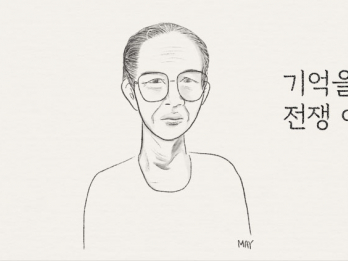
- 인도네시아에서 일본군이 일으킨 성폭력(2) - 위다닌시, 드리스 씨 이야기
-
이 글은 『인도네시아의 ‘위안부’』(아카시 서점, 1997)를 쓴 가와타 후미코가 만난 인도네시아의 일본군'위안부' 피해자들, 그 중에서도 위다닌시 씨와 드리스 씨의 이야기이다.
-
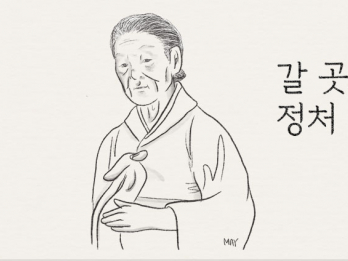
- 일본인 ‘위안부’ 다마코 씨 이야기 (1)
-
그동안 배봉기 씨를 만나러 오키나와에 갈 때마다 다마코 씨도 찾아갔었다. 다마코 씨에게는 왠지 모를 친근감을 느꼈다. 같은 일본인이라고 의식해서일까. 아니면 나보다35살 위였지만 다마코 씨의 타고난 성격이 사랑스러웠기 때문일까.
-

- 일본인 ‘위안부’ 다마코 씨 이야기 (2)
-
공습이 시작되었을 때 다마코 씨는 하녀인 기누코, 어린 게이샤와 함께 메이세이루를 뛰쳐나왔다. 하지만 어디로 도망가야 할지 몰랐다. 다마코 씨는 망설임 끝에 일행과 떨어져 혼자서 산속으로 도망쳐 헤맸다. 섬을 쪼갤듯이 작렬하는 포탄 소리와 귓가를 스치는 총탄 소리에 덜덜 떨며 우왕좌왕했고 문득 정신을 차렸을 때는 천연 수로 안에 있었다.
-
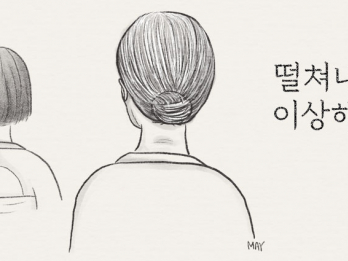
- 일본인 ‘위안부’ 다미 씨 이야기
-
“언론에는 한국 사람 얘기만 나오던데, 국내에도 위안소가 있었다는 사실을 아실까 해서요.” 도쿄에 거주하는 당사자 다미(가명) 씨가 '위안부 110번'으로 제보를 해왔다.
- Writer Kawata Fumiko (川田文子)
-
Kawata Fumiko (川田文子) was born in 1943 in Ibaraki Prefecture, Japan. She started her career as a writer in 1977 after graduating from the Department of Literature at Waseda University in 1966. In late 1977, she met Bae Bong-gi, the first witness to illustrate the damages suffered by the Japanese Military "Comfort Women". Her most important work is 『The House with a Red Tile Roof - The Story of Korean Women Who Became the Japanese Military "Comfort Women" (赤瓦の家―朝鮮から来た従軍慰安婦) 』 which is a book based on the interviews of Bae Bong-gi to follow in the footsteps of the Korean women who were taken to the Japanese Military Comfort Stations in the Kerama Islands (慶良間諸島), Okinawa (沖縄). She is also the author of 『The Women of Yesterday (つい昨日の女たち)』, 『Ryukyuko's Women (琉球弧の女たち)』, 『Women of the Imperial Forces’ Japanese Military Comfort Station (皇軍慰安所の女たち)』, 『War and Sex (戦争と性)』, 『”Comfort Women” in Indonesia (インドネシアの「慰安婦」)』, 『Girls Called “Comfort Women” in the Battlefield (イアンフとよばれた戦場の少女)』, 『Grandmother's Song (ハルモニのうた)』 and so on.